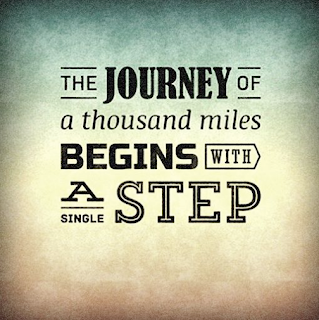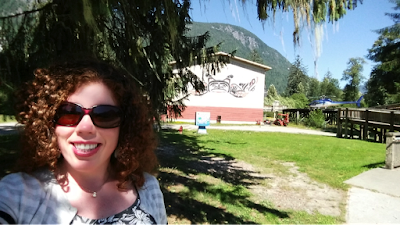JEAN CATON
THE BUSINESSWOMAN'S COACH
HOST OF COLOR MY WORLD CONFIDENT PODCAST
THE BUSINESSWOMAN'S COACH
HOST OF COLOR MY WORLD CONFIDENT PODCAST
I love hearing about the non-traditional roles that dietitians have, I think it says a lot about our skills. Jean has created a unique business based on her career experiences, and I love that she's focused on helping women build confidence and succeed in the corporate world. She has interesting thoughts on the future of dietetics and I agree that we need more specialists, not generalists.
Why did you become a RD?
I did not have a clear career vision for sure. My reason for becoming an RD was that chemistry was my favorite subject in high school. Becoming an RD was not a common or well known career path when I entered the field.
What area of dietetics do you work in?
I no longer work in dietetics. In my early career, I worked in dietetics for nine years - briefly as a Clinical Dietitian at a community hospital and then was promoted to Chief Dietitian. I then took a position as Education Coordinator at a Harvard Affiliated teaching hospital where I was Assistant Director of the Nutrition Department and co-developed an Internship Program that I coordinated. Next, I then moved into the business world, leveraging my RD credential and my MBA, and took a position as Product Manager for an enteral feeding line of devices and nutritional supplements.
How would you explain what you do?
Currently I am a Business Woman’s Coach, Professional Speaker, and Podcaster. I leverage my nearly 25 years as a senior business leader in corporate America to support women, primarily in the STEM (Science, Technology, Engineering and Mathematics) fields including many RDNs. I coach professional women to help them achieve their goals of greater career, business, and communication confidence using telephone or Skype. I also speak to professional women associations and organizations on career advancement and have a podcast, Color My World Confident, that is on the topic of confidence.
What are your ‘typical’ daily/weekly tasks?
I have a very flexible and abbreviated work week working 15-20 hours. My time is spent primarily coaching clients who find me via my speaking engagements, through referral or by word of mouth. By batching my weekly podcast recording, I record interviews approximately two times a month and outsource the post production. I spend a modest amount of time on social media promoting my podcast.
What has been your career path?
(See above).
What advanced education or special training do you have?
I have a MS in Food & Nutrition and an MBA. I am a graduate of the Advanced Coach Training Program of Coach U. I went from being a dietitian to corporate America where I spent the majority of my career as a business leader for four Fortune 500 Companies. I started my own business after I graduated corporate America and had stashed away a lot of money. I had early interest in my own wellness business but went into the corporate world instead because I was a bit risk averse. That is why I consider myself a ‘chicken entrepreneur.’
In an ideal world, what does the industry look like 5 years from now?
I see a nutrition profession/industry divided down the middle into two major segments. In one segment is the Advanced Clinical Practitioner (no generalists) who is highly specialized in one of many areas (somewhat similar to the MD model of Cardiologist, Oncologists, Pediatrician, and the evolving Neuroscience, Gut, and Genetic Personalized Medicine fields etc.)
The second segment will be consumers facing health and wellness focused practitioners who are highly skilled in Communication strategies, Psychology and Human Behavior (including skills in coaching, motivational interviewing and psychology), Marketing and Self-Promotion.
Corporate wellness programs will become more in demand with a more comprehensive approach including mindfulness and other modalities that link the emotional and stress related aspects of health and nutrition. Only the more confident and assertive partitioners will thrive among the increasing competition from the evangelistic, self-proclaimed experts as well as MDs, RNs, Personal Trainers, and the countless other professionals and non-professionals whose opinion is heard and respected.
What misinformation about RDs would you like to clear up?
That RDs are not well paid. Although true for some RDs there are countless RDs making six-figure salaries that reflect the value they are contributing to their organizations or their entrepreneurial endeavors. It is up to each individual RDN to take the necessary steps to assure they are paid what they are worth.
What are challenges you encounter as a RD?
The RD still has an image problem. And personally I don’t think advocating for eating a hot fudge sundae or other decadent foods is the way to make them more human.
What are you passionate about in dietetics?
There are two areas that I have strong beliefs about: My professional passion is my campaign to boost the confidence of dietitians and help them think a lot bigger and play a much bigger game. Playing big will translate into true leadership at a very high level on the world stage.
What is your favourite meal?
I’m sorry to report I eat to live and do not live to eat. That said, breakfast is my favorite meal. Bob’s Red Mill multigrain cereal with local blueberries and real maple syrup proceeded by a cup of strong, black coffee. Also, I love plain cheese pizza, African Peanut Stew, and fish I buy at the market in the afternoon when it was caught and cleaned that morning.
What tip(s) would you give to our readers?
Believe in yourself. Anything else you’d like to add that you feel would be valuable:
What area of dietetics do you work in?
I no longer work in dietetics. In my early career, I worked in dietetics for nine years - briefly as a Clinical Dietitian at a community hospital and then was promoted to Chief Dietitian. I then took a position as Education Coordinator at a Harvard Affiliated teaching hospital where I was Assistant Director of the Nutrition Department and co-developed an Internship Program that I coordinated. Next, I then moved into the business world, leveraging my RD credential and my MBA, and took a position as Product Manager for an enteral feeding line of devices and nutritional supplements.
How would you explain what you do?
Currently I am a Business Woman’s Coach, Professional Speaker, and Podcaster. I leverage my nearly 25 years as a senior business leader in corporate America to support women, primarily in the STEM (Science, Technology, Engineering and Mathematics) fields including many RDNs. I coach professional women to help them achieve their goals of greater career, business, and communication confidence using telephone or Skype. I also speak to professional women associations and organizations on career advancement and have a podcast, Color My World Confident, that is on the topic of confidence.
What are your ‘typical’ daily/weekly tasks?
I have a very flexible and abbreviated work week working 15-20 hours. My time is spent primarily coaching clients who find me via my speaking engagements, through referral or by word of mouth. By batching my weekly podcast recording, I record interviews approximately two times a month and outsource the post production. I spend a modest amount of time on social media promoting my podcast.
What has been your career path?
(See above).
What advanced education or special training do you have?
I have a MS in Food & Nutrition and an MBA. I am a graduate of the Advanced Coach Training Program of Coach U. I went from being a dietitian to corporate America where I spent the majority of my career as a business leader for four Fortune 500 Companies. I started my own business after I graduated corporate America and had stashed away a lot of money. I had early interest in my own wellness business but went into the corporate world instead because I was a bit risk averse. That is why I consider myself a ‘chicken entrepreneur.’
In an ideal world, what does the industry look like 5 years from now?
I see a nutrition profession/industry divided down the middle into two major segments. In one segment is the Advanced Clinical Practitioner (no generalists) who is highly specialized in one of many areas (somewhat similar to the MD model of Cardiologist, Oncologists, Pediatrician, and the evolving Neuroscience, Gut, and Genetic Personalized Medicine fields etc.)
The second segment will be consumers facing health and wellness focused practitioners who are highly skilled in Communication strategies, Psychology and Human Behavior (including skills in coaching, motivational interviewing and psychology), Marketing and Self-Promotion.
Corporate wellness programs will become more in demand with a more comprehensive approach including mindfulness and other modalities that link the emotional and stress related aspects of health and nutrition. Only the more confident and assertive partitioners will thrive among the increasing competition from the evangelistic, self-proclaimed experts as well as MDs, RNs, Personal Trainers, and the countless other professionals and non-professionals whose opinion is heard and respected.
What misinformation about RDs would you like to clear up?
That RDs are not well paid. Although true for some RDs there are countless RDs making six-figure salaries that reflect the value they are contributing to their organizations or their entrepreneurial endeavors. It is up to each individual RDN to take the necessary steps to assure they are paid what they are worth.
What are challenges you encounter as a RD?
The RD still has an image problem. And personally I don’t think advocating for eating a hot fudge sundae or other decadent foods is the way to make them more human.
What are you passionate about in dietetics?
There are two areas that I have strong beliefs about: My professional passion is my campaign to boost the confidence of dietitians and help them think a lot bigger and play a much bigger game. Playing big will translate into true leadership at a very high level on the world stage.
What is your favourite meal?
I’m sorry to report I eat to live and do not live to eat. That said, breakfast is my favorite meal. Bob’s Red Mill multigrain cereal with local blueberries and real maple syrup proceeded by a cup of strong, black coffee. Also, I love plain cheese pizza, African Peanut Stew, and fish I buy at the market in the afternoon when it was caught and cleaned that morning.
What tip(s) would you give to our readers?
Believe in yourself. Anything else you’d like to add that you feel would be valuable:
More about Jean:
Website: Coach Jean Caton
Podcast: Color My World Confident
Podcast: Color My World Confident
Linkedin: Jean Caton
Twitter: @JEANCATON
Facebook: Color My World Confident
Email: JeanCaton@CoachJeanCaton.com
Thanks Jean! Find out more about What RDsDo.
If you're a dietitian that would like to be featured, email me for the details!
If you're a dietitian that would like to be featured, email me for the details!









